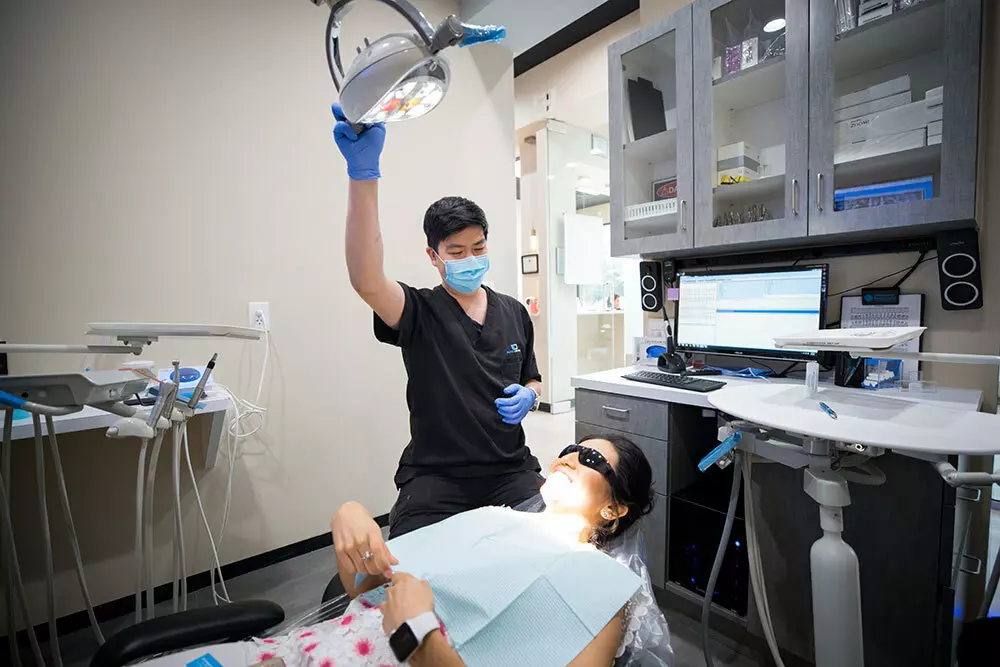Your teeth clenching, grinding, or gnashing is called bruxism. Usually, it occurs unconsciously when you're asleep or awake. Stress, anxiety, sleep issues, and specific drugs are among the causes.
What is the definition of bruxism?
Your teeth clenching, grinding, or gnashing is called bruxism. It typically happens unconsciously and can occur when you're sleeping or awake.
Many people occasionally grind their teeth, particularly when they're under stress. However, frequent use can place additional strain on your jaws and teeth, which can result in migraines, jaw pain, and other problems in addition to dental damage. Research online reviews and patient testimonials to find the best dentist in Houston for your specific dental needs.
Various forms of bruxism
Bruxism can strike when you're sleeping or not. Although bruxism occurs in both waking and asleep states, the grinding action is the same:
Awake bruxism: If you only brux (grind or clench) when you're awake, you may not require therapy if you can lower your stress levels and raise your awareness. Teeth grinding can be an indication of stress, tension, or anger.

Sleep bruxism: Grinding or clenching your teeth while you sleep can be more detrimental than doing so during the day because you are unaware of it.
To effectively manage the symptoms of grinding, people with sleep bruxism frequently require Treatment for Severe Bruxism.
How does one treat bruxism?
You probably don't need official therapy if you only sometimes grind your teeth or if your bruxism is mild. However, in more extreme situations, medical professionals may suggest the following bruxism treatments:
Mouth shields. A dentist can create a bespoke mouthguard to keep your teeth safe. Additionally, by repositioning your jaw, this appliance might lessen the strain on your TMJ muscles.
Methods for reducing stress. Reducing stress may lessen bruxism symptoms. This covers various treatments, such as cognitive behavioural therapy, exercise, and meditation.
Lifestyle changes. Reducing your daily intake of caffeine or alcohol can assist if it's the cause of your teeth grinding. Giving up smoking can assist you in stopping bruxism and improving the quality of your sleep.
Drugs One way to minimize or avoid teeth grinding is to take a muscle relaxant before bed. The majority of medical professionals only suggest this strategy in the short term.
Shots of botulinum toxin. In extreme situations, medical professionals may suggest Botox® to treat teeth grinding. These injections relieve pain and temporarily relax the muscles in your jaw. To keep your results, you'll need to get Teeth Grinding Treatment again, usually every three to four months.

Can one avoid becoming a bruxist?
Sometimes, quitting clenching or grinding your teeth is impossible, especially if you do it while asleep. However, you can take the following actions to lower your total risk:
To lessen everyday stress, cultivate mindfulness.
Make routine dental examinations. A same day dental near me can treat any dental damage to prevent further damage. Steer clear of drugs for recreation, smoking, and excessive alcohol use.
Is crushing your teeth a significant issue?
It doesn't matter if you grind your teeth only occasionally. However, if you do it frequently over an extended period, it may cause headaches, temporomandibular joint disease, tinnitus, and other health problems in the future.
In a nutshell
Do you get facial pain when you wake up in the morning? Perhaps headaches bother you in the mornings every day. Alternatively, you may feel worn out from a restless night and not know why. Any of these enigmatic signs may indicate bruxism or teeth grinding and clenching. Find A Dentist Houston who can assist you in locating the right course of treatment and confirm a diagnosis.
